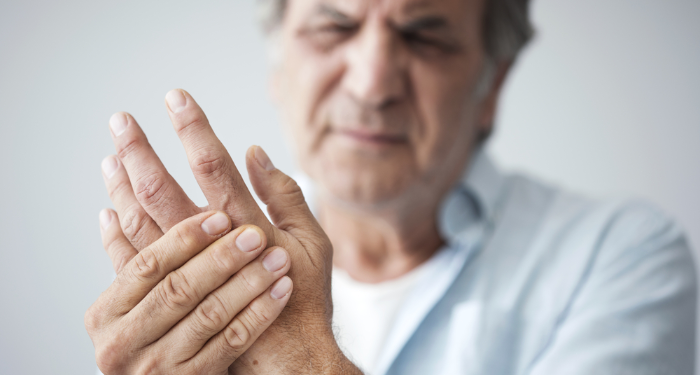High Uric Acid Level: Causes, Symptoms & Treatment
Written By: Dr. Foroozan Khezri
Updated On:December 25, 2023

What Is Uric Acid?
Uric acid is a waste product produced by the body when it breaks down compounds called purines. Most of this uric acid is carried by the blood to the kidney, which removes it in the form of urine. Abnormally high amounts of uric acid being retained by the body can lead to a condition called hyperuricemia.
Uric Acid Causes
Factors which are responsible for uric acid disease include the following:
-
Diuretics: These are also known as water pills. They are often used for the management of high blood pressure.
-
Excessive Alcohol Intake: The kidneys prioritize the removal of waste from alcohol metabolism over uric acid. This causes uric acid to remain in the body.
-
Purine-rich Diet: A diet that includes high levels of purines, found in food like meat, beans, peas, mushrooms, seafood etc. can lead to high levels of uric acid in the blood. This is because the breakdown of these foods by the body leads to the production of uric acid.
-
Kidney Inefficiency: In some cases, an individual’s kidneys may not be able to filter out waste products effectively. This can lead to uric acid remaining in the body, instead of being removed as urine. Therefore, kidney damage or disease can lead to hyperuricemia.
-
Hypothyroidism: This refers to a condition in which the thyroid glands may be underactive. In this condition, the flow of plasma to the kidneys may be reduced & filtration by the kidneys may be impaired. This can lead to high uric acid.
-
Obesity: Obesity has been shown to cause hyperuricemia in many cases.
-
Drugs: The use of immuno-suppressant drugs may lead to high uric acid in the body.
-
Cancer: Certain types of cancers or chemotherapy may cause certain cells to be rapidly released into the bloodstream & can be another cause of hyperuricemia.
When to See a Doctor for High Uric Acid Level
Having high levels of blood uric acid in the absence of any other symptoms does not require medical attention. However, high uric acid levels along with symptoms such as kidney stones or gout flare-up warrant medical attention. If you experience these symptoms, contact your doctor.
Risk Factors of Uric Acid
Risk factors for high blood uric acid levels include the following:
-
Weight: Individuals who are severely overweight or obese are at a higher risk of having high uric acid.
-
Diet: Frequent consumption of foods rich in purines can lead to high levels of uric acid. These foods include red meat, organ meat & certain seafood such as scallops, molluscs & tuna. Consumption of foods & drinks sweetened with fructose syrup can also lead to high uric acid levels.
-
Kidney Disease or Injury: Kidney damage can reduce kidney efficiency. This can result in improper filtration of waste products & therefore, high uric acid.
Complications of Uric Acid
It has been reported that only around one-third of people with hyperuricemia experience symptoms. Although hyperuricemia is not a disease, if left untreated for a long time, can cause numerous diseases, including:
- Tophus Gout: This is a type of arthritis. Hyperuricemia can cause the formation of urate crystals (tophi) that settle in the body’s joints, leading to inflammation & pain. Every 2 in 10 people with hyperuricemia gets gout. Symptoms of gout include:
- Redness & inflammation in joints
- Inability to move affected joints comfortably
- Pain in the joints
- Stiffness of joints
- Joints appearing deformed
- Kidney Stones: Uric acid crystals can cause the accumulation of stones within the kidney. Mostly, these stones are quite small & are therefore easily removed from the body during urination. However, at times these stones may grow too large to be removed naturally, causing immense pain & blocking of the urinary tract. Symptoms of kidney stones include:
- Blood in the urine (hematuria)
- Pain while urinating
- Nausea
- Pain or discomfort in the lower back, abdomen or groin
- Increased urge to urinate
- Urine having an abnormally unpleasant or foul smell
Uric Acid Treatment
High levels of uric acid & its associated symptoms can be managed in the following ways:
-
Diet Control: It is important to control the number of purines present in your diet to prevent uric acid levels in the body from increasing further. Foods rich in purines such as meat, seafood, beans etc., can also cause gout pain to flare up & become worse. Therefore, by ensuring a controlled intake of purines the symptoms of hyperuricemia can be controlled.
-
Weight Loss: Gout caused by high uric acid causes pain & swelling of joints, which worsens with increase in body weight. Therefore, losing weight can help reduce stress on these joints leading to a reduction in pain.
-
Non-Steroidal Anti-Inflammatory Drugs (NSAIDs): These are prescribed to patients with gout to help reduce pain & joint inflammation.
-
If the tophi causing gout becomes too large & starts causing damage to surrounding muscle & tissue, they must be surgically removed.
-
To treat kidney stones 5 millimeters or smaller, you may be advised to drink a lot of water in order to allow these stones to pass out through urine.
-
In order to treat kidney stones of sizes 5 millimeters or larger, doctors may prescribe medications to relax muscles of the urinary tract. This allows the stones to pass out of the body with reduced pain.
-
For the treatment of large kidney stones, lithotripsy may be used. In this procedure, the stones are non-invasively broken down into smaller pieces through high frequency sound waves. These smaller stones can then be passed out through urination.
-
Stones greater than 10 millimeters require surgery to be removed.
Uric Acid Diet
In order to keep the body’s uric acid levels in check, it is important to reduce the sources of uric acid in your diet. Foods high in uric acid that should be avoided by individuals with hyperuricemia are:
- Mutton
- Seafood (fish, shellfish, scallops etc.)
- Turkey
- Mutton
- Veal
- Cauliflower
- Green peas
- Beans
- Mushrooms
Other dietary considerations include:
-
Avoiding Processed Foods with Added Refined Sugar: Although high uric acid levels are linked mainly to protein-rich foods, studies have found that foods with large amounts of sugar may also cause hyperuricemia.
-
Limiting Alcohol Consumption: This is because alcohol can lead to dehydration & a flare in uric acid levels. This is because the kidneys begin filtering out components present in alcohol instead of uric acid.
-
Drinking lots of Water: This enables the kidneys to flush out uric acid in urine faster & so prevents it from accumulating & forming urate crystals in the body.
-
Increasing Fiber Intake as it can also help the body remove uric acid. For this reason, including a healthy amount of fiber in your diet can be beneficial. It is recommended to add at least 5 to 10 grams of soluble fiber with foods like:
- Nuts
- Fruits that may be frozen, fresh or dried
- Vegetables
- Oats
Prevention of Uric Acid:
The most important measure to manage blood uric acid levels is dietary control. Limiting intake of foods that are rich in purines such as red meat, tuna, organ meat etc. will help maintain normal uric acid levels. As the body breaks down fructose, leading to purine production, limiting the intake of foods & drinks containing fructose syrup can help reduce uric acid levels as well.
Also, being overweight or obese increases the risk of having high blood uric acid, so weight loss may be effective in managing uric acid in certain individuals.
For more information on causes, symptoms & treatment of high uric acid levels, get in touch with us.
Meet our doctors from the Urology department























